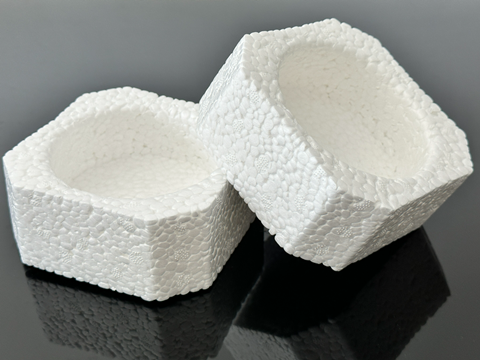
TotalEnergies Corbion and Useon have partnered to advance the development and global commercialization of EPLA moulded products - high-performance foam materials made from TotalEnergies Corbion’s Luminy PLA bioplastics.
The companies state that EPLA (Expanded PLA) is a plant-based, industrially compostable alternative to fossil-based expanded polystyrene (EPS). Developed using Useon’s direct bead foaming technology and TotalEnergies Corbion’s Luminy PLA, EPLA is designed to be a circular solution for packaging, thermal protection, and other moulded applications traditionally dominated by EPS foams.
Apparently, EPLA foam products are lightweight, protective and durable, making them suitable for packaging, food service, and cold-chain applications. EPLA is said to break down into water, carbon dioxide, and biomass under industrial composting conditions.
As part of the agreement, both companies will promote EPLA technology globally, share application developments and market insights, and collaborate on new product innovation. Useon and TotalEnergies Corbion plan to showcase EPLA foam at Chinaplas 2025.
In February, TotalEnergies Corbion collaborated with Win Win Water to launch bottled water in ‘fully biodegradable’ bottles made from Luminy PLA material. Designed for rapid biodegradation, the bottles reportedly break down within 90 days in commercial composting facilities.
Smart Planet Technologies released a biopolymer version of its EarthCoating barrier coating in January, combining a biobased PLA resin with a ‘specialized mineral blend’ to produce both compostable and recyclable paper cups. EarthCoating-Bio features mineralized resin to improve a coated pack’s compatibility with conventional paper recycling systems.
If you liked this story, you might also enjoy:
The ultimate guide to the Packaging and Packaging Waste Regulation in 2024
How are the top brands progressing on packaging sustainability?
Sustainable Innovation Report 2024: Current trends and future priorities
Everything you need to know about global plastic sustainability regulation














No comments yet